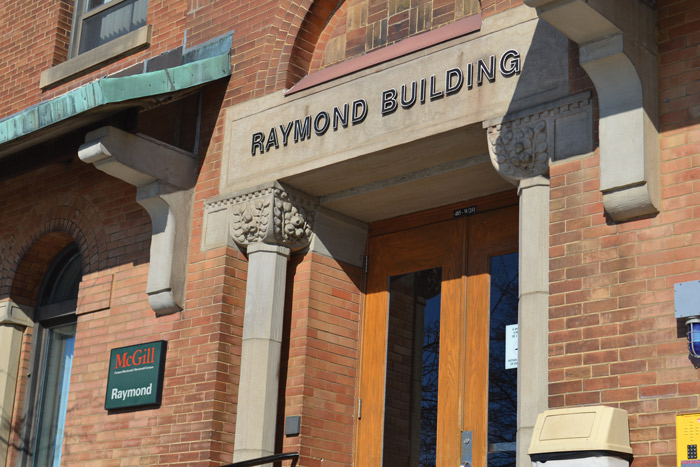The McGill community received word from Director (Campus Public Safety) Pierre Barbarie on Jan. 31 that three Macdonald Campus buildings were to be closed, effective immediately, due to the detection of asbestos in the Raymond building. All classes conducted in the Raymond, Macdonald-Stewart, or Barton buildings were either re-located, held virtually, or cancelled. Some research personnel who needed to tend to animals, plants, or live cell cultures were allowed back into the buildings with proper personal protective equipment.
Asbestos—a group of naturally occurring minerals made up of microscopic fibres—was used as an insulant in many buildings built between 1930 and 1990 because of its strength and resistance to high temperatures. While asbestos is harmless if undisturbed, it can be dangerous when inhaled, causing mesothelioma, a type of cancer, and fibrotic lung disease, in the worst cases.
In a statement to The McGill Tribune, McGill media relations officer Frédérique Mazerolle noted that the university is taking this issue very seriously and is working to ensure the safety of students and staff.
“Extensive testing will be conducted over the next few days to find and isolate the source of the problem,” Mazerolle wrote. “The Macdonald-Stewart and Barton buildings, while not under construction, are being closed out of an abundance of caution while testing is conducted.”
In an update email sent on Feb. 1, Barbarie wrote that third-party testing for asbestos would prioritize the Macdonald-Stewart and Barton buildings before the Raymond building.
According to the President of the Macdonald Campus Students’ Society (MCSS), Defne Helvacioglu, the closure of these three buildings has left the campus with only one main building—Centennial Centre—accessible to students and staff. Helvacioglu outlined the scale of the issue in an email to the Tribune.
“These buildings have most of our laboratories, our only library, one of the two food resources on campus, computer labs, all offices of faculty staff, and most research labs,” Helvacioglu wrote. “Right now students do not have access to any of these facilities, they cannot perform their labs and are moved to online lectures [….] I personally know that a lot of undergraduate and graduate students’ research labs are affected by this.”
Blake Callan, U1 Agricultural and Environmental Sciences, told the Tribune that one of the primary concerns for students and staff is the disruption of labs and research.
“We are just unsure whether or not our labs will continue, as online lectures are definitely doable,” Callan said. “Life at Mac has been affected, as I cannot use the library and I like to use it, especially with midterms approaching.”
Helvacioglu said the Centennial Centre will remain open at full capacity in order to support students. She disclosed that the detection of asbestos as well as the recent closure of the only grocery store in Ste-Anne-de-Bellevue have greatly affected student life at Macdonald campus.
“It creates frustration when things are unstable, and Ste-Anne is becoming more of a food desert and now we cannot access our main buildings where most of the academic activities happen,” Helvacioglu wrote. “We acknowledge that large-scale construction can bring unexpected situations, however, all these things are adding up.”










https://www.cancer.org/healthy/cancer-causes/chemicals/asbestos.html
Christopher J Lipowski.
First and former McGill University Health and Safety Officer
Pinnacle Enterprises Canada